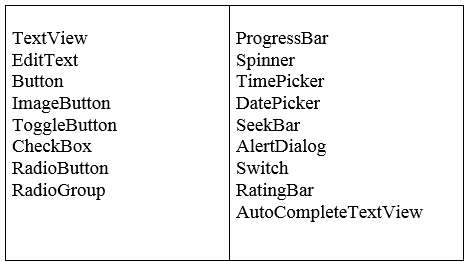The purpose of a permission is to protect the privacy of an Android user. Android apps must request permission to access sensitive user data (such as contacts and SMS), as well as certain system features (such as camera and internet). Depending on the feature, the system might grant the permission automatically or might prompt the user to approve the request.
A central design point of the Android security architecture is that no app, by default, has permission to perform any operations that would adversely impact other apps, the operating system, or the user. This includes reading or writing the user's private data (such as contacts or emails), reading or writing another app's files, performing network access, keeping the device awake, and so on.
Android manifest file
has divided into 9 groups
·
READ_CALENDAR
·
WRITE_CALENDAR
·
CAMERA
·
READ_CONTACTS
·
WRITE_CONTACTS
·
GET_ACCOUNTS
·
ACCESS_FINE_LOCATION
·
ACCESS_COARSE_LOCATION
· RECORD_AUDIO
·
READ_PHONE_NUMBERS
·
CALL_PHONE
·
ANSWER_PHONE_CALLS (must be requested at
runtime)
·
READ_CALL_LOG
·
WRITE_CALL_LOG
· ADD_VOICEMAIL
·
PROCESS_OUTGOING_CALLS
·
ANSWER_PHONE_CALLS
·
READ_PHONE_NUMBERS
·
BODY_SENSORS
·
SEND_SMS
·
RECEIVE_SMS
· READ_SMS
·
RECEIVE_MMS
·
READ_EXTERNAL_STORAGE
·
WRITE_EXTERNAL_STORAGE
·
CALL_LOG
·
READ_CALL_LOG
·
WRITE_CALL_LOG
·
PROCESS_OUTGOING_CALLS




0 Comments